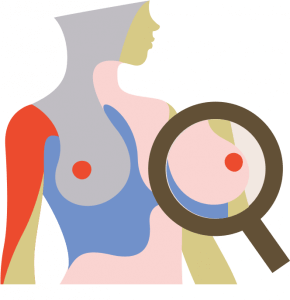A cancer diagnosis has the potential to throw your entire life into disarray, impacting both your physical and mental wellbeing. At SurvivorNet, we believe treating the whole person is imperative, so we've teamed up with Dr. Marianna Strongin to leverage her expertise as a licensed clinical psychologist. Dr. Strongin will answer SurvivorNet reader questions on topics ranging from The 3-3-3 Rule to acknowledging the link between mind and body and everything in between. (You can submit your questions here.)
*****
Read More
Some of the panic symptoms you described may be situationally-bound panic, which occurs upon the anticipation of something we fear. What often prolongs these panic symptoms is avoidance. It will be important that you acknowledge your desire to avoid, but still follow through. Avoidance only feeds our fear and anxiety.
When you begin to feel panic symptoms such as the sensation of being “paralyzed,” it will be critical that we calm your body and reorient your mind. I recommend using a technique called the “3-3-3 Rule”- which asks that you name three things you see, list three things you hear and finally move three parts of your body. By doing this when you notice your panic symptoms coming on, your body will begin to slow down and your mind will focus on the present.

*****
I am a recently diagnosed melanoma patient. Honestly, I was not surprised when my doctor told me I had melanoma. I am known as the friend who is always glowing from his tan. Whether I was laying on the beach or at tanning salons, I made sure I was tan 365 days of the year. Weirdly enough, I feel completely fine with this entire process. I still plan to go to the beach all the time but just wear more sunscreen.
I feel like I should be scared and take this more seriously, but I'm young and feel healthy…
Dr. Strongin: Typically in our younger years we value our physical appearance and tend to undervalue our physical health. As we mature, we begin to learn just how interconnected our mind and body can be. As a result, we generally begin paying attention to how our mind and body communicate and hopefully start making changes/adjustments to our behavior. In your case, it looks like being tan and focusing on your outer appearance greatly improved your mood and confidence. However, your recent melanoma diagnosis may be a wake up call signaling a change in your behavior with tanning and a need to re-evaluate your relationship with self-appearance. This diagnosis is a message, and it’s important that you allow yourself to hear it.
People react in a variety of ways to a cancer diagnosis. In many cases people experience denial in order to avoid feeling anxiety. Denial is a defense mechanism we all use from time to time in order to cope with distressing and uncomfortable feelings. In denial, we are less likely to feel anxious and also less likely to change our behavior. Therefore, it is important that you examine your underlying fears and think about the potential negative consequences of NOT taking action. In doing so, you can allow yourself to express your fears and emotions. We don’t always need to feel fearful in order to create change, however we do need to be able to tolerate and digest information that might be anxiety provoking. In your case, I urge you to take this diagnosis as an important message for both your mind and body.
Learn more about SurvivorNet's rigorous medical review process.


